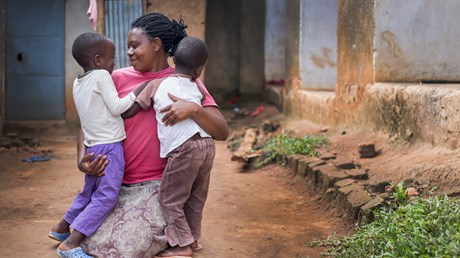The coronavirus outbreak will be either the worst or the best thing to happen to the world’s institutionalized children. It’s our choice.

In April, 19,200 orphans across Kenya went home. Their orphanages had closed because of the coronavirus outbreak.
In the Ukraine, 42,000 children in institutions were returned to their families in the same time frame, according to the International Leadership and Development Center, a child welfare charity in Kiev. Similar mass movements of orphans back to their families have been reported in Uganda and India.
Many will be surprised that orphans have homes and families to go to. But of the approximately 5.4 million children in orphanages around the world, the vast majority have a living parent and all of them have extended family, according to data from Save the Children and UNICEF.
Research indicates that institutions are not the best place for children to flourish and that the bonds of family are as important as access to education, food, and clothing for children to thrive. One study found that children lose approximately one month of development for every three months they spend in institutional care. Another study found that 1 in 3 children exiting residential care become homeless, 1 in 5 gain a criminal record, and as many as 1 in 10 die by suicide.
Institutions can cause or exacerbate attachment disorders and mental health challenges and can involve a greater risk of abuse, neglect, and maltreatment. Experts believe residential care should only be used as a last resort because, no matter how well-run an orphanage may be, it is still severely detrimental to a child’s well-being and development.
In December 2019, 198 nations signed a United Nations Resolution on the Rights of the Child which, for the first time, recognized the harm caused by institutionalizing children. However, the sudden pandemic, not the signed ...
from Christianity Today Magazine https://ift.tt/2GOa5zm
No comments:
Post a Comment